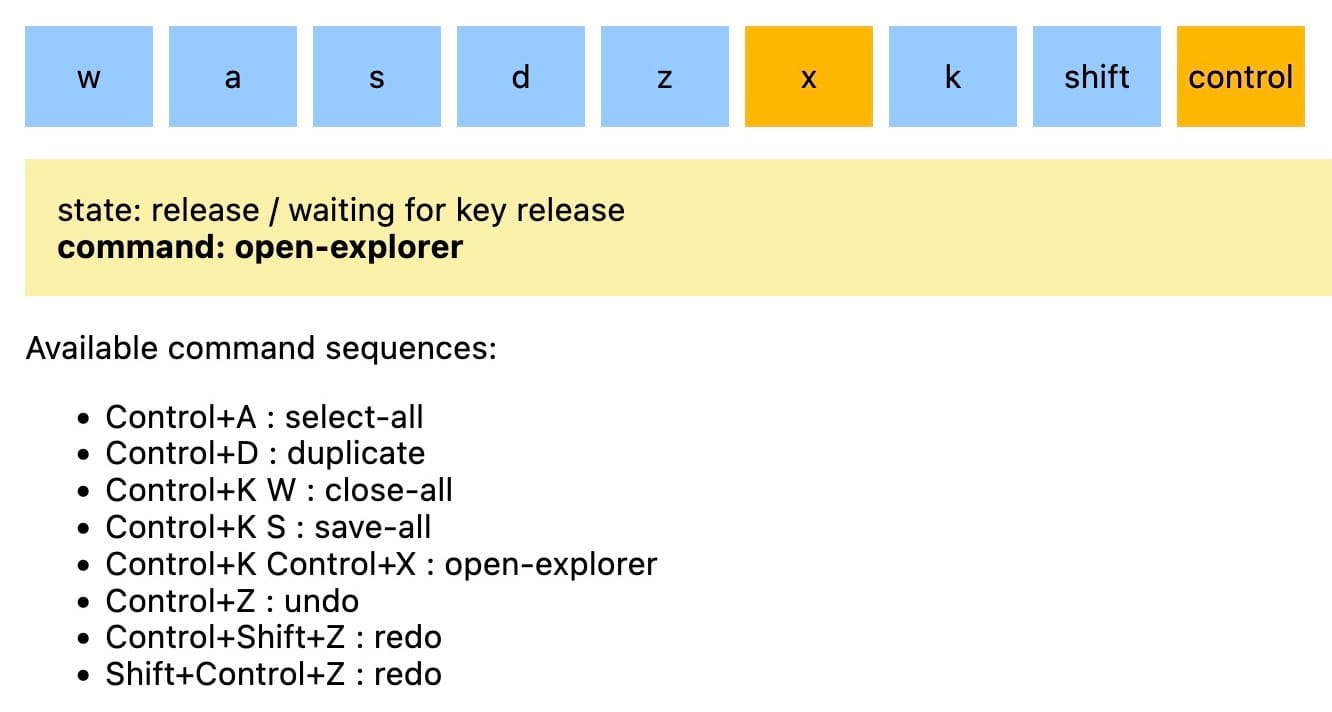
Security News
RubyGems.org Adds New Maintainer Role
RubyGems.org has added a new "maintainer" role that allows for publishing new versions of gems. This new permission type is aimed at improving security for gem owners and the service overall.
@thi.ng/transducers-fsm
Advanced tools

[!NOTE] This is one of 199 standalone projects, maintained as part of the @thi.ng/umbrella monorepo and anti-framework.
🚀 Please help me to work full-time on these projects by sponsoring me on GitHub. Thank you! ❤️
Update 12/2022: This package is considered completed and no longer being updated with new features.
Transducer-based Finite State Machine transformer. This is a support package for @thi.ng/transducers.
This package provides a single function, a general purpose Finite State Machine transducer, which acts as useful & lightweight mechanism to provide context-sensitive processing capabilities as part of a transducer transformation pipeline.
COMPLETED - no further development planned
Search or submit any issues for this package
This package might be merged with (or deprecated by) the newer @thi.ng/parse package.
yarn add @thi.ng/transducers-fsm
ESM import:
import * as fsm from "@thi.ng/transducers-fsm";
Browser ESM import:
<script type="module" src="https://esm.run/@thi.ng/transducers-fsm"></script>
For Node.js REPL:
const fsm = await import("@thi.ng/transducers-fsm");
Package sizes (brotli'd, pre-treeshake): ESM: 213 bytes
Note: @thi.ng/api is in most cases a type-only import (not used at runtime)
One project in this repo's /examples directory is using this package:
| Screenshot | Description | Live demo | Source |
|---|---|---|---|
 | rstream & transducer-based FSM for converting key event sequences into high-level commands | Demo | Source |
For a real world example, the @thi.ng/sax package provides a SAX-like XML parser transducer, built around the FSM provided here.
The following example defines a simple FSM with 3 states:
skiptakedoneThe FSM always starts in the skip state.
The FSM alternates between skipping or consuming (passing through) 5
inputs as long as each input is < 20. Once an input is >= 20, the FSM
switches into the done state, which has been declared as a terminal
state and once entered will cause processing to terminate (also see API
description further below).
import { fsm } from '@thi.ng/transducers-fsm'
import * as tx from '@thi.ng/transducers'
import { isOdd } from '@thi.ng/checks'
const testFSM = fsm({
// initial state initializer
// (called before processing 1st input)
init: () => ({ state: "skip", count: 0 }),
// terminal state ID
terminate: "done",
// individual state handlers
states: {
// skip state
skip: (state, x) => {
if (x < 20) {
if (++state.count > 5) {
state.state = "take";
state.count = 1;
return [x];
}
} else {
state.state = "done";
}
},
// take state
take: (state, x) => {
if (x < 20) {
if (++state.count > 5) {
state.state = "skip";
state.count = 1;
} else {
return [x];
}
} else {
state.state = "done";
}
},
// terminal state, ignore inputs
done: () => { },
},
});
[...tx.iterator(testFSM, tx.range(100))]
// [ 5, 6, 7, 8, 9, 15, 16, 17, 18, 19 ]
// Use FSM as part of composed transducers...
[...tx.iterator(tx.comp(tx.takeNth(2), testFSM), tx.range(100))]
// [ 10, 12, 14, 16, 18 ]
[
...tx.iterator(
tx.comp(
tx.mapcat((x) => x.split(/[,\s]+/g)),
tx.map((x) => parseInt(x)),
testFSM,
tx.filter(isOdd)
),
["9,8,7,6", "14 1 0 17 15 16", "19,23,12,42,4"]
)
]
// [ 1, 17, 15 ]
fsm<T extends FSMState, A, B>(opts: FSMOpts<T, A, B[]>): Transducer<A, B>
Finite State Machine transducer. Takes an FSM configuration object and returns a transducer, which processes inputs using the provided state handler functions, which in turn can produce any number of outputs per consumed input.
Before processing the first input, the FSM state is initialized by
calling the user provided init() function, which MUST return a state
object with at least a state key, whose value is used for dynamic
(i.e. stateful) dispatch during input processing. This state object is
passed with each input value to the current state handler, which is
expected to mutate this object, e.g. to cause state changes based on
given inputs.
If a state handler needs to "emit" results for downstream processing, it
can return an array of values. Any such values are passed on
(individually, not as array) to the next reducer in the chain. If a
state handler returns null or undefined, further downstream
processing of the current input is skipped.
Regardless of return value, if a state handler has caused a state change
to the configured terminate state, processing is terminated (by calling
ensureReduced()) and no further inputs will be consumed.
If this project contributes to an academic publication, please cite it as:
@misc{thing-transducers-fsm,
title = "@thi.ng/transducers-fsm",
author = "Karsten Schmidt",
note = "https://thi.ng/transducers-fsm",
year = 2018
}
© 2018 - 2024 Karsten Schmidt // Apache License 2.0
FAQs
Transducer-based Finite State Machine transformer
We found that @thi.ng/transducers-fsm demonstrated a healthy version release cadence and project activity because the last version was released less than a year ago. It has 0 open source maintainers collaborating on the project.
Did you know?

Socket for GitHub automatically highlights issues in each pull request and monitors the health of all your open source dependencies. Discover the contents of your packages and block harmful activity before you install or update your dependencies.

Security News
RubyGems.org has added a new "maintainer" role that allows for publishing new versions of gems. This new permission type is aimed at improving security for gem owners and the service overall.

Security News
Node.js will be enforcing stricter semver-major PR policies a month before major releases to enhance stability and ensure reliable release candidates.

Security News
Research
Socket's threat research team has detected five malicious npm packages targeting Roblox developers, deploying malware to steal credentials and personal data.